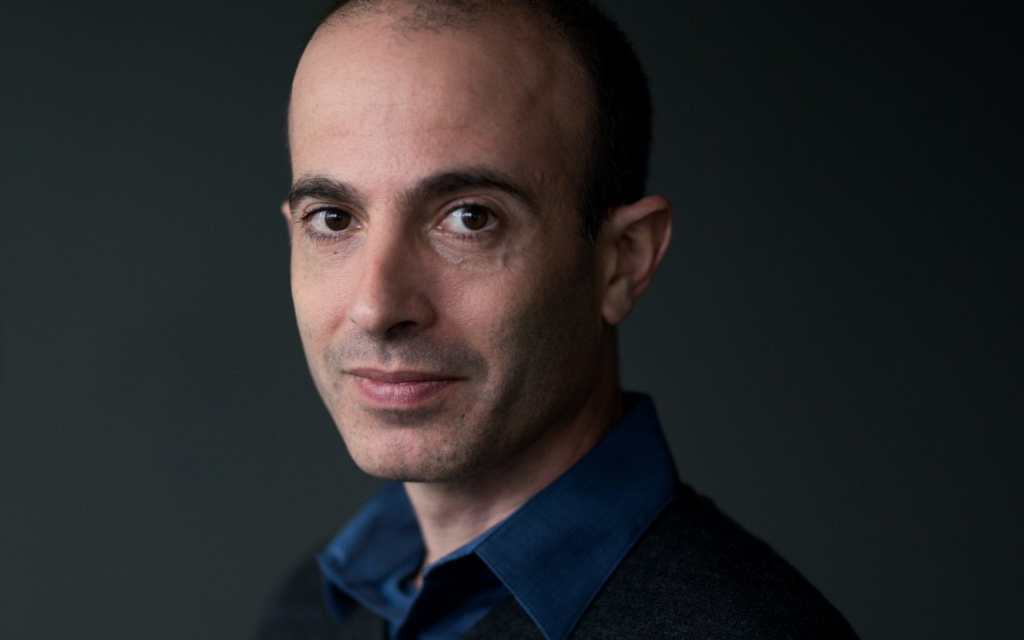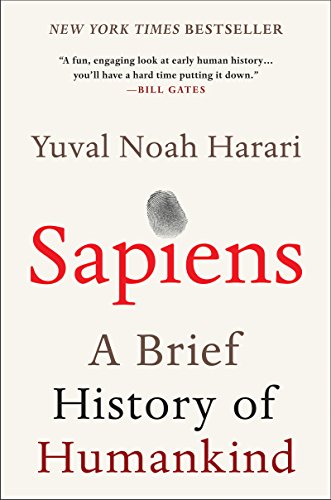Yuval Noah Harari is not a historian of centuries, epochs, or nations. He is a historian of ideas.
“According to current scientific dogma, everything I experience is the result of electrical activity in my brain, and it should be therefore be theoretically feasible to simulate an entire virtual world that I could not possible distinguish from the ‘real’ world. Some brain scientists believe that in the not too distant future, we shall actually do such things. Well, maybe it has already been done – to you? For all you know, the year might be 2216 and you are a bored teenager immersed inside a ‘virtual world’ game that simulates the primitive and exciting world of the early twenty-first century. Once you acknowledge the mere feasibility of this scenario , mathematics leads you to a very scary conclusion: since there is only one real world, whereas the number of potential virtual worlds is infinite, the probability that you happen to inhabit the sole real world is almost zero.”
His delving under the covers of what makes things happen is usually about the compromises Homo Sapiens has made in order to get what it wants.
Modernity is a deal: “humans agree to give up meaning in exchange for power.”
He doesn’t explain how and why a country emerged, floundered, revived, and then flourished; he explains how the Dark Ages persisted for so long – the future was thought unnecessary – but then evolved into the Renaissance and eventually into modernity because of the invention of trust and its consequence, credit. And it is this expansion of ideas that maintains and powers our modernity, and although we are looking down the barrel of an environmental disaster, it is the evolution and development of ideas, and their consequences, that may be our salvation. Not God or the return of one, but our own endeavours.
Europe for centuries was a hotbed of conflict, disasters, and battlegrounds. Now, just sixty years after the last great conflict, World War II, Europe is the most stable, cooperative, and progressive region on Earth; mainly thanks to two other ideas: democracy and capitalism. Yes, at the moment there is an energy crisis, but no hint of war.
We once asked God to help us recover from illness; now we ask science whose credo is humanism. Religion still exists. Sapiens hasn’t completely lost faith in God, but we have found our faith in humanity.
It was thought for centuries that if Sapiens stopped believing in God law and order would vanish. But the greatest threat to global law and order today is not the secular nations, the Netherlands, Sweden, Vietnam, but god-fearing nations, Syria, Afghanistan, and bands of god-warriors, Boko-Haram, Islamic-State.
“Religion is any all-encompassing story that confirms super-human legitimacy on human laws, norms, and values. It legitimises social structures by arguing that they reflect superhuman laws.”
Religions: Hinduism, Christianity, Islam, and the like, but also Buddhism, communism, Nazism, and liberalism.
And humanism is the current one.
“If modernity has a motto, it is ‘shit happens’ so since there is no cosmic plan we can do whatever we want. We can even create paradise here on earth; we just have to find a way and overcome a few technical difficulties.” This is at the heart of the book.
Islam says do what God says, you servants, and you will be rewarded in Heaven; Christianity says even though you were created bad, you sinners, you must strive to be good; Humanism says create meaning, you humans, for a meaningless world.
This book was written pre Covid, 2015. But when referencing the Ebola epidemic in West Africa on 2014 prayers weren’t sent to Heaven (as was done as late as 1918 during the deadly Spanish Flu pandemic) but calls were made to stockbrokers, and shares of pharmaceutical companies working on anti-Ebola drugs increased to up to 90%. Now shares in Pfizer, Johnson & Johnson, and Moderna, and the rest have skyrocketed. They have the money to work on a cure, a vaccine in record time.
“For the stock exchange an epidemic [pandemic] is a business opportunity.”
If a woman in mediaeval Britain had sex with her married neighbour and worried later about her actions she would go to a priest, tell her story, and ask what should she do. The priest would say she must atone for her sin, say twenty Hail Mary’s, go on a pilgrimage, go without meat for a month, and put a lot of coins in the collection box. Today the woman would go to her therapist, tell her story and ask what should she do. The therapist will say “How do you feel about what you have done?”
What next? What comes after Humanism? … Dataism.
You must read the book to find out what that means.
You can buy the book in various formats here.
Here is a lecture given by Harari at the University of California in 2017 about this book, Homo Deus.
And here is a shorter TED talk from 2015 on “Why Humans Run the World.”



